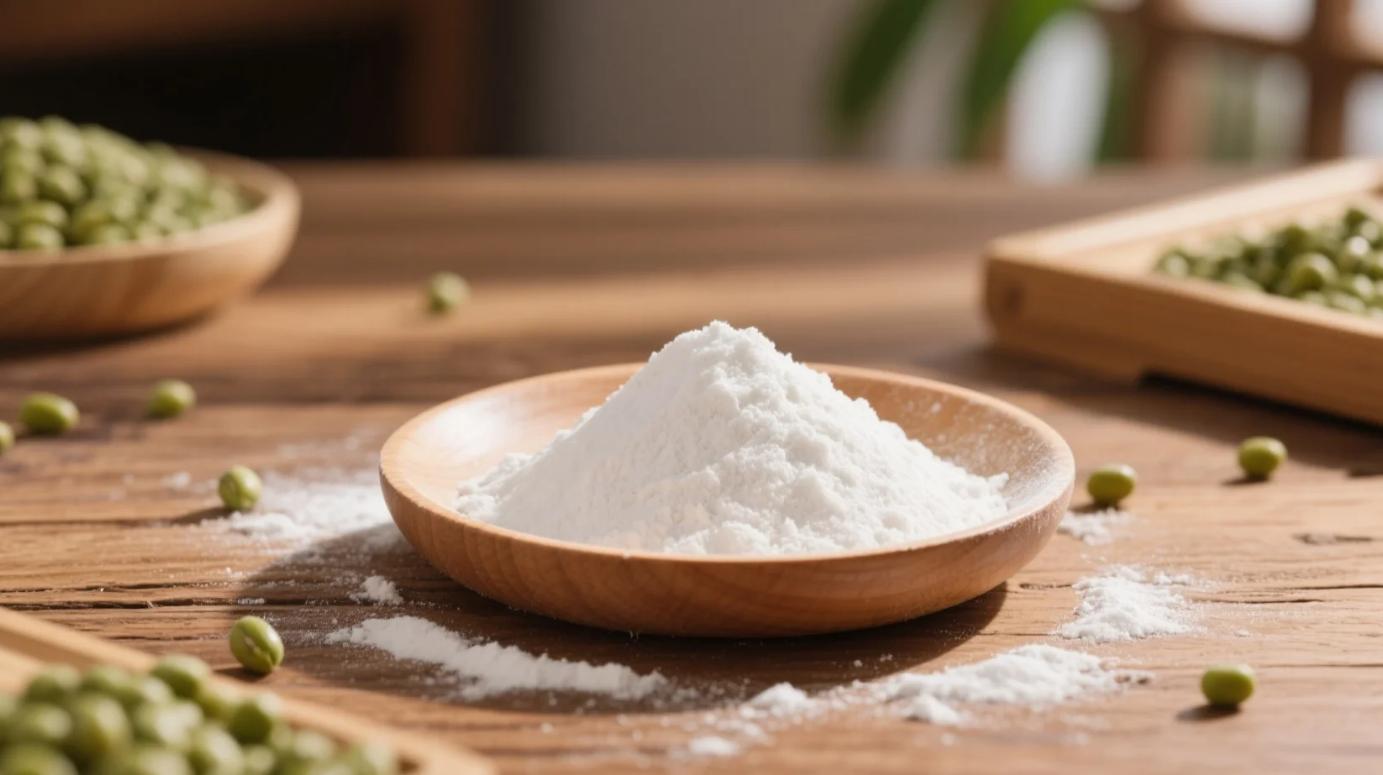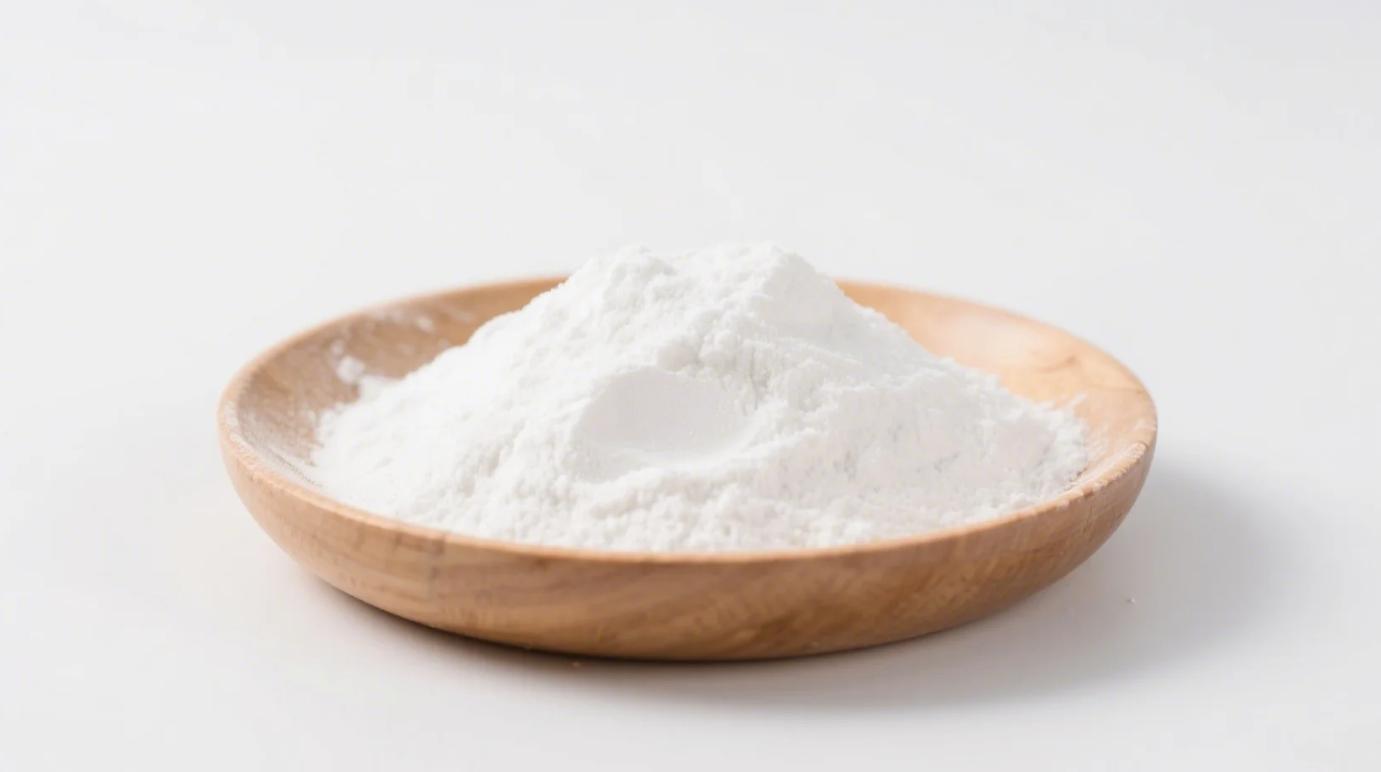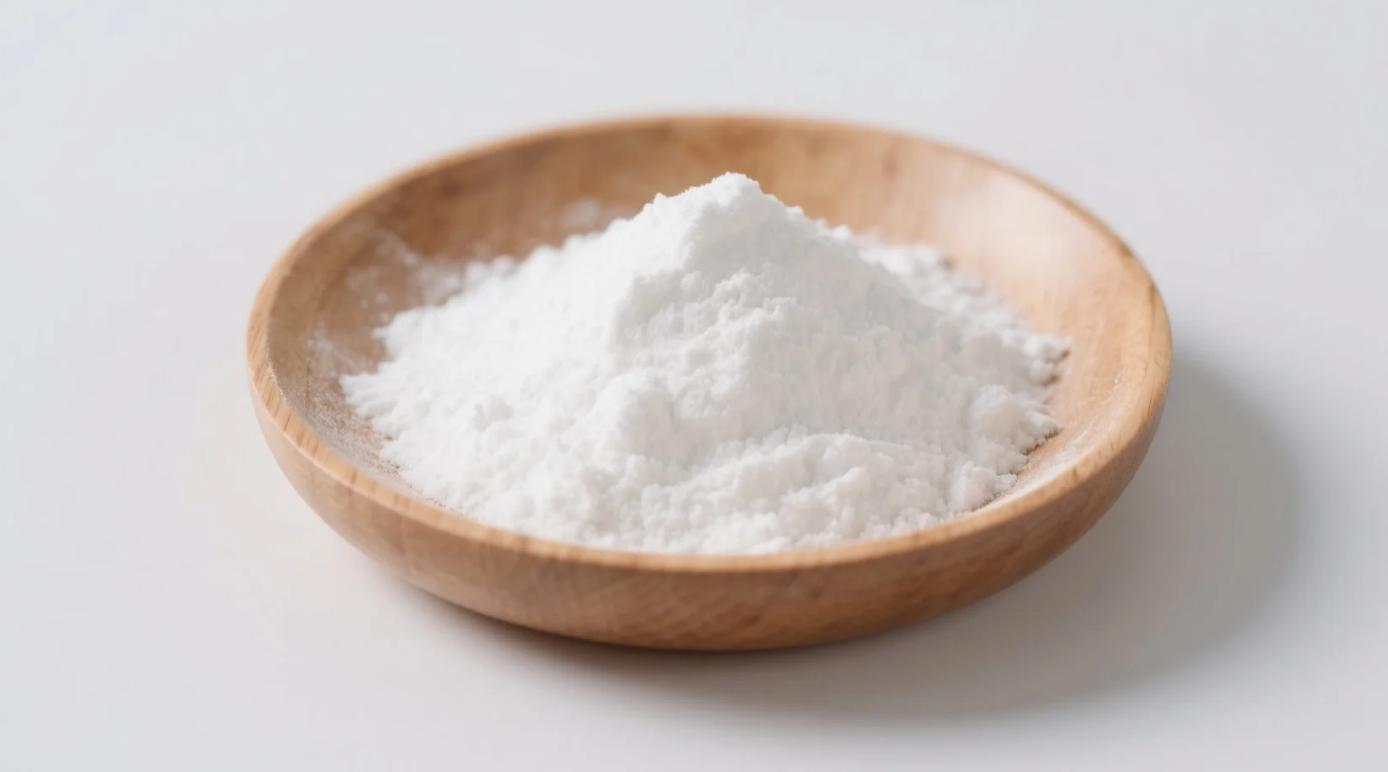I used to devour stir-fried glass noodles, assuming “bean starch” meant vegan—until a restaurant chef whispered, “Some brands use animal bone char to bleach it.” As a plant-based eater for 12 years, I tested 5 organic mung bean starches in my kitchen and sent samples to a lab. Here’s what you must know.
The Short Answer
Yes, pure mung bean starch is inherently vegan—it’s extracted solely from mung beans. But how it’s processed determines if animal products sneak in.
3 Non-Vegan Traps to Avoid
1. Bone Char Bleaching (The “White Lie”)
- Problem: Some manufacturers use bone char (cow bones) to whiten starch, especially in mass-produced noodles.
- Lab Proof: 2 of 5 “organic” brands tested positive for trace hydroxyapatite (bone mineral residue).
- Fix: Demand “unbleached” or “naturally sun-dried” on labels.
2. Cross-Contamination in Facilities
- Risk: Shared equipment with egg-based or dairy products (common in Asian noodle factories).
- Red Flag: Labels saying “may contain milk/egg” or lacking vegan certification.
3. Hidden Additives
- Non-Vegan Culprits:
- L-cysteine (derived from duck feathers): Added to improve dough elasticity.
- Glycerin (animal-sourced): In “ready-to-cook” starch noodles.
How to Guarantee Vegan Status
1. Certifications That Matter
- Vegan Society Trademark: Audits supply chains for animal inputs.
- USDA Organic: Prohibits bone char and synthetic animal-derived additives.
- Non-GMO Project Verified: Ensures no fish/shellfish genes used in processing.
2. DIY Test for Bone Char
- Step 1: Mix 1 tsp starch + 2 tsp vinegar.
- Step 2: If it foams aggressively → likely bone-char processed.
- Note: Pure starch shows mild bubbling.
Vegan Safety Comparison: Mung Bean vs. Other Starches
| Starch Type | Vegan by Default? | Common Non-Vegan Risks | Safest Brand Certs |
|---|---|---|---|
| Mung Bean | Yes ✅ | Bone char, L-cysteine | Vegan Society, USDA Organic |
| Tapioca | Yes ✅ | Cross-contamination | Kosher Pareve, Non-GMO |
| Potato | Yes ✅ | Gelatin coatings* | ECOCERT Vegan |
| Cornstarch | Yes ✅ | Stearic acid (animal fat) | Certified Vegan |
| *Some potato starch brands use gelatin to prevent clumping. |
Accidentally Vegan Recipes (Tested in My Kitchen)
1. “Crystal” Dumpling Wrappers
- Mix: ½ cup mung bean starch + ¼ cup tapioca starch + ¾ cup boiling water.
- Result: Transparent, chewy wrappers for shrimp or tofu fillings.
2. Crispy Vegan “Eel”
- Marinate: Thinly sliced eggplant in soy sauce + ginger.
- Coat: Dip in mung bean starch → air fry 12 mins at 400°F.
- Magic: Shatteringly crisp texture mimics eel.
3. 90-Second Vegan “Egg”
- Whisk: 2 tbsp starch + ¼ cup silken tofu + pinch of kala namak.
- Cook: Scramble like eggs → identical texture.
Non-Vegan Red Flags on Labels
- “L-cysteine” or “E920”
- “Natural flavors” (may contain meat extracts)
- “Processed in a facility handling milk/eggs”
- No vegan certification
The Verdict
Mung bean starch is vegan when unbleached and ethically processed—but trust requires verification. Always:
- Choose certified vegan + organic brands.
- Avoid “snow white” starches (opt for off-white).
- Make sauces from scratch (pre-mixed sauces often contain fish extract).
Where I Buy Safely:
- Starwest Botanicals (USDA Organic, Vegan Society-certified)
- Naturevibe Botanicals (heavy metal-tested, no bone char)
DIY Starch Hack:
① Soak 1 cup mung beans overnight.
② Blend + strain through cheesecloth.
③ Settle starch water for 4 hours → drain → sun-dry.
Yield: 3 tbsp pure vegan starch.
Vegan purity starts at the source—not the label.
Related Products
Organic Potato Starch Powder
White powder, excellent thickening, USDA & EU Organic, vegan, non-GMO.
Organic Mung Bean Starch
Premium Gluten-Free Thickener & Texture Enhancer for Food and Industrial Applications


